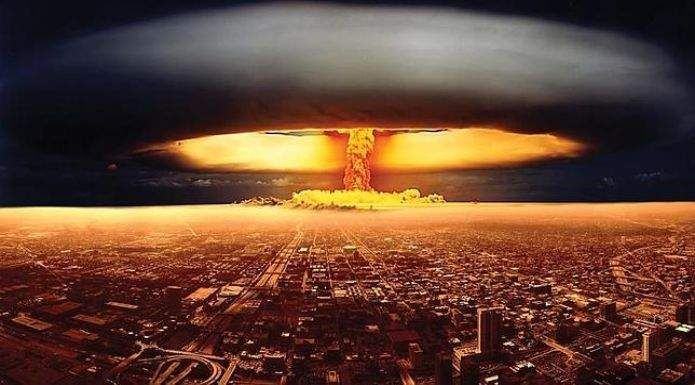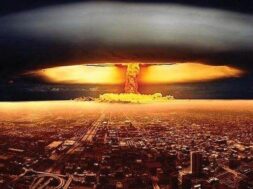
6-August-1945: 76th anniversary of the dropping of the world’s first atomic bomb
New Delhi: A sixth of August is still a black day for Japan when the United States detonated two nuclear weapons over the Japanese cities of Hiroshima and Nagasaki on 6 and 9 August 1945, respectively. The two bombings killed between 129,000 and 226,000 people, most of them were civilians, and remain.
Those who survived the nuclear strike faced frightening aftermath as they developed radiation-induced illnesses. The bomb codenamed ‘Little Boy’ unleashed hell in the Japanese city.
The war in Europe concluded when Germany surrendered on 8 May 1945, and the Allies turned their full attention to the Pacific War. By July 1945, the Allies’ Manhattan Project had produced two types of atomic bombs: “Fat Man”, a plutonium implosion-type nuclear weapon; and “Little Boy”, an enriched uranium gun-type fission weapon. The 509th Composite Group of the United States Army Air Forces was trained and equipped with the specialized Silverplate version of the Boeing B-29 Super fortress and deployed to Tinian in the Mariana Islands. The Allies called for the unconditional surrender of the Imperial Japanese armed forces in the Potsdam Declaration on 26 July 1945, the alternative being “prompt and utter destruction”. Japan ignored the ultimatum.
Japan surrendered to the Allies on 15 August, six days after the Soviet Union’s declaration of war and the bombing of Nagasaki. The Japanese government signed the instrument of surrender on 2 September, effectively ending the war. Scholars have extensively studied the effects of the bombings on the social and political character of subsequent world history and popular culture, and there is still much debate concerning the ethical and legal justification for the bombings. Supporters believe that the atomic bombings were necessary to bring a swift end to the war with minimal casualties, while critics argue that the Japanese government could have been brought to surrender through other means while highlighting the moral and ethical implications of nuclear weapons and the deaths caused to civilians.













